Last week, I had a chance to see one of the “Deming Library” videos (on loan to me by Claire Crawford-Mason). BTW, I'll be interviewing Claire soon about her reflections on working closely with W. Edwards Deming for the production of these videos and the famous 1980 NBC program about Deming).
That interview:
And that NBC program:
I watched one video, produced in 1998 (after Dr. Deming's death in 1993):
“How Everyone Wins: Finding Joy, Meaning, and Profit in the Workplace.“
The video makes many great points, including a few things I tweeted–thoughts and pictures–while watching it.
Some of the great things Dr. Deming said in the video:
“People are different from one another. A leader must be aware of these differences.” They are not interchangeable machine parts.
I have learned from my own career that there are “one size fits all” approaches to managing people in a team. Deming taught that we must understand and manage people as individuals.
Dr. Deming also said:
“The job the leader is to make his people feel important.”
One way to do that is to really listen to your employees and be humble. Ask their opinions and get them involved in improvement–work that matters.
Another lesson from the video is (paraphrasing):
First understand and get agreement about the aim of the system (organization).
We can't know just WHAT to do. We must also agree on WHY.
And here are five screen captures of “What Deming Taught the Japanese”:
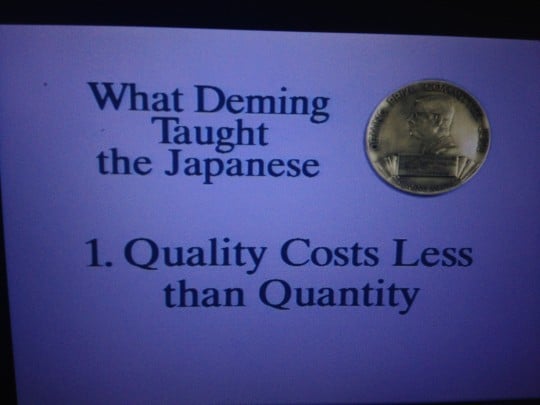
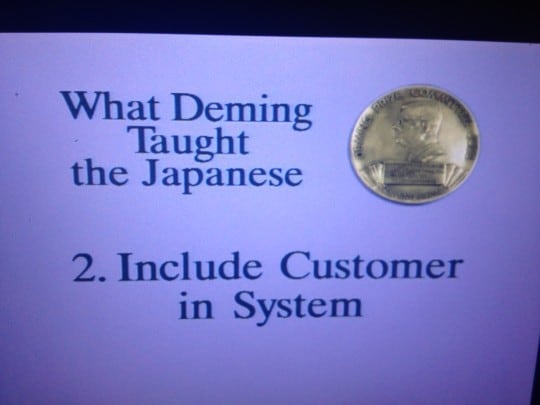
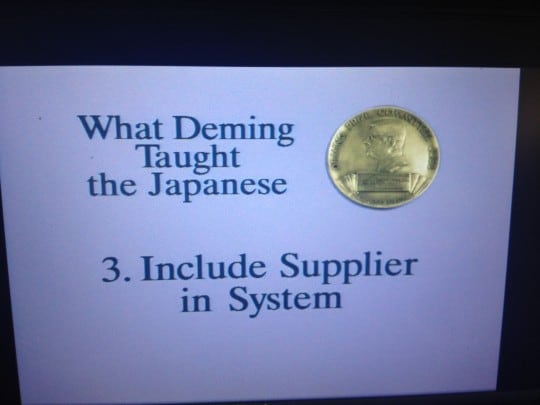
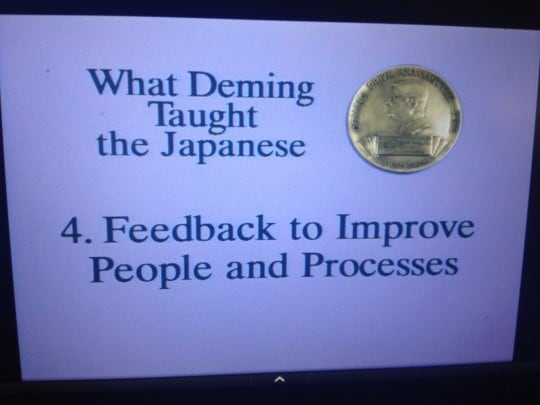
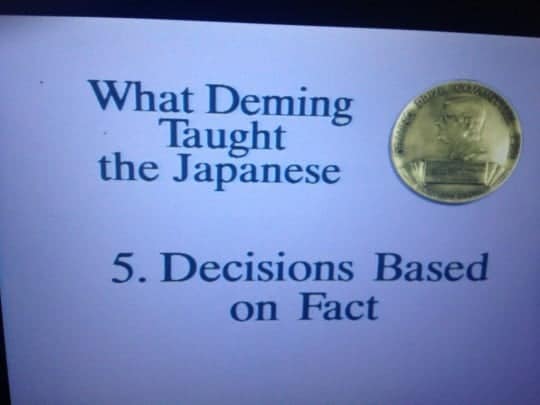
I think we can find these five philosophies in modern-day “Lean management” in healthcare or beyond. We can also find some of it (like “decisions based on fact”) in other approaches like Six Sigma. Although, I've learned from Toyota books that “fact” (what you can see and verify with your own eyes) is not necessarily the same as “data” (or just numbers, which might be missing context or other important information).
“Feedback on people,” of course, means more than just an annual review or ranking process. Deming was opposed to the traditional annual review (as are people like Prof. Samuel Culbert – my podcast with him is here) and said we needed to be leaders instead… giving continual coaching and feedback throughout the year, rather than just judging them at year's end.
What do you think? Please scroll down (or click) to post a comment. Or please share the post with your thoughts on LinkedIn – and follow me or connect with me there.
Did you like this post? Make sure you don't miss a post or podcast — Subscribe to get notified about posts via email daily or weekly.
Check out my latest book, The Mistakes That Make Us: Cultivating a Culture of Learning and Innovation:










Good stuff. Including the supplier and the customer in the system are immensely valuable ideas. Sadly they are done poorly, or not at all, far too often.
Hi Mark,
I was reading the new Atul Gawande article in last week’s New Yorker and wondered your thoughts on it and on provider chains like Steward generally. Do these necessarily involve the integration of lean or is it something else? What about the recent acquisitions by Davita, Aetna, etc?
http://www.newyorker.com/reporting/2012/08/13/120813fa_fact_gawande
Thanks,
Gunther
Hi Gunther-
Yes, I blogged it about it last week:
LINK
Bigger doesn’t necessarily mean better. Do customer service and cost always improve when a company or organization gets bigger? Not necessarily.
Lean and process improvement are a very necessary part of the puzzle, otherwise things get more complex and dysfunctional as we get bigger.